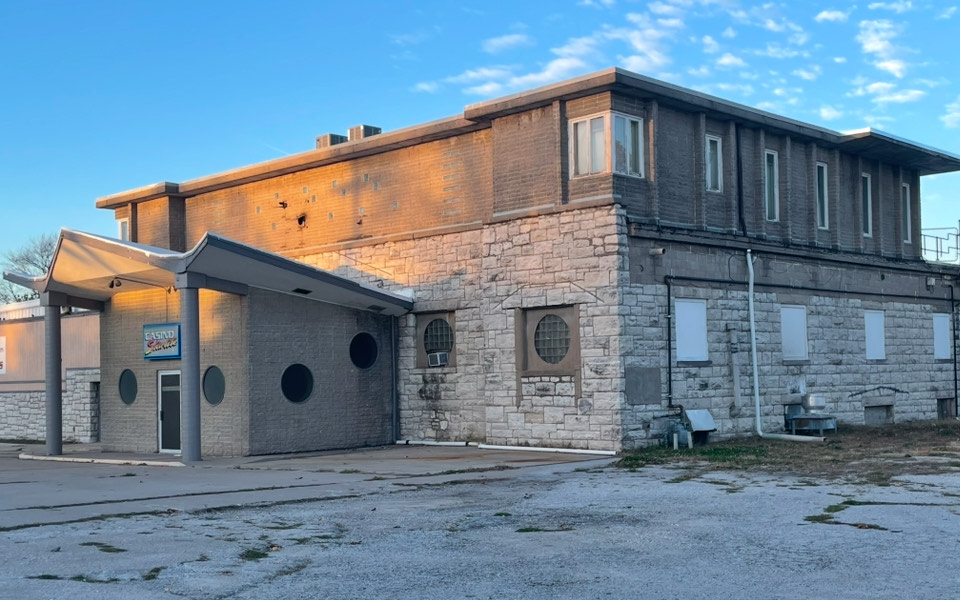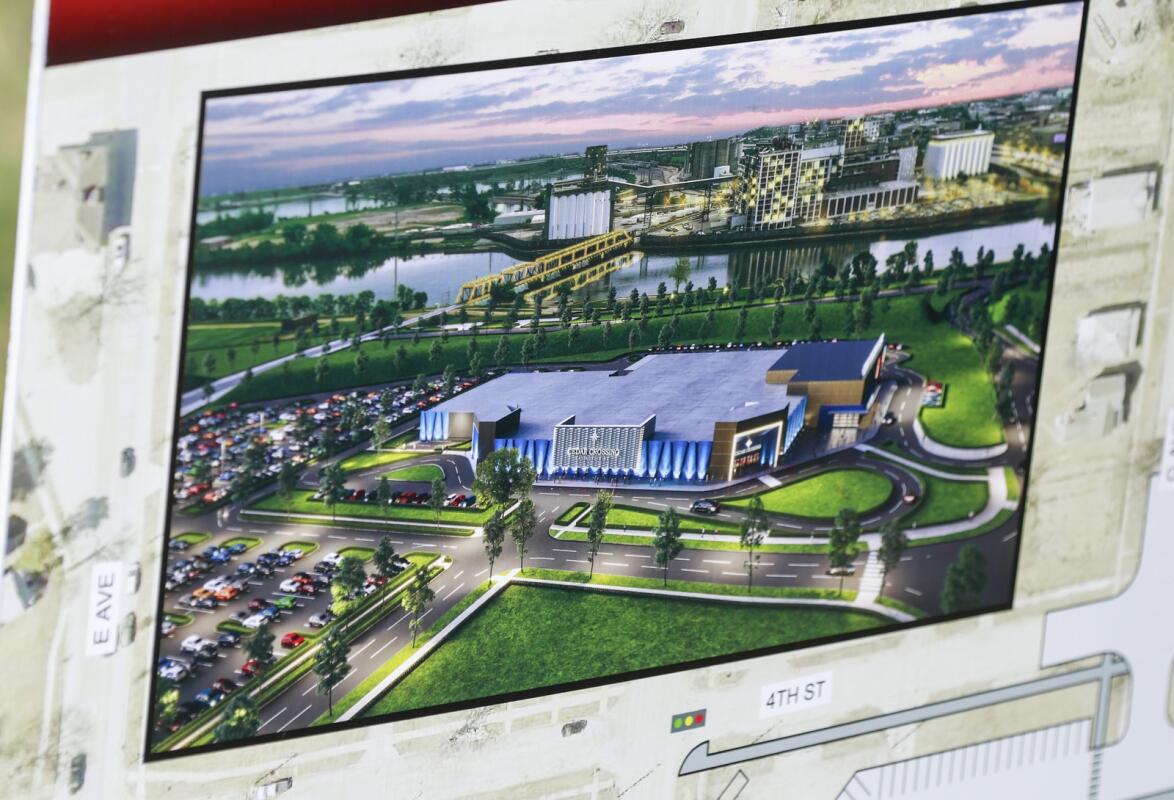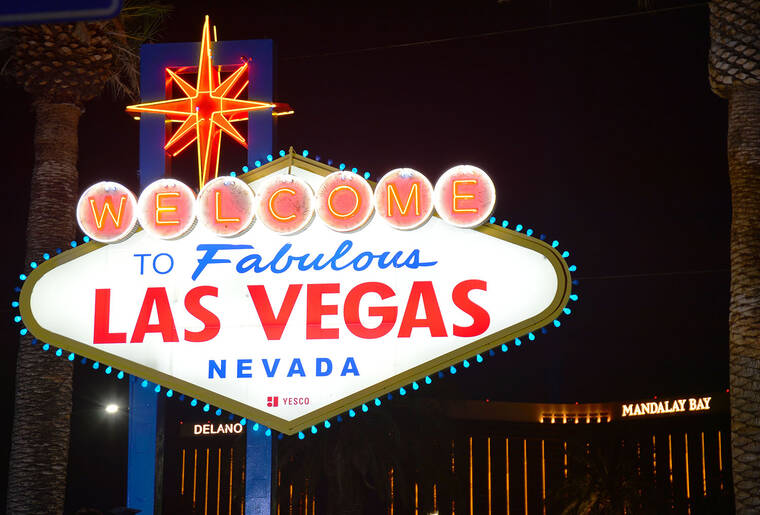The Gazette offers audio versions of articles using Instaread. Some words may be mispronounced.
At the top of Mount Trashmore, the grinches did gather. And something had worked them into a lather.
These grinches had formed a cartel in cahoots. And with them were lawyers in tailored gray suits.
Together they screamed while the sleeping town dreamed.
“We must stop a Cedar Rapids casino right now. We must stop a casino from coming, but how?”
Cannibalization will ruin us, the grinches did say. Their lawyers’ billable hours grew three sizes that day.
OK maybe not.
But forces are lining up seeking to stop Cedar Rapids investors from winning a coveted casino license. The casino cartel, led by Riverside Casino & Golf Resort, has brought out the long knives, hoping to protect its turf from the Linn County interlopers.
It’s a four-front battle.
Riverside has filed a petition with the Iowa Racing and Gaming Commission arguing ballot language used in a 2021 Linn County gambling referendum was outdated and improper. So, if you thought you voted to reauthorize gambling, you really didn’t.
If there was no legitimate vote, the commission has no authority to grant the Cedar Crossing Casino a state license.
On Thursday, the commission decided it would hear arguments from both sides of the legal skirmish. But it declined to delay the licensing process, as requested by Riverside.
A delay would have helped the cartel’s allies in the Legislature, where they will try to pass another moratorium on new licenses before the Racing and Gaming Commission decides Cedar Rapids’ casino fate on Feb. 6.
Lawmakers gavel in the new session on Jan. 13, giving casino opponents a little more than three weeks to push a bill to passage.
Can’t be done, you say.
In 2017, the Republican-controlled Legislature introduced and passed a bill gutting public employee collective bargaining rights in just 10 days. It took just two weeks for Republicans to approve publicly funded scholarships for private school students after it was called for by Gov. Kim Reynolds in her Condition of the State address.
So, the Legislature can move fast if its leadership waves the green flag. And a moratorium isn’t going to spark massive blowback like bargaining and vouchers. It will probably draw votes from both parties. Iowans outside Linn County will shrug.
Riverside and its allies have also launched a benign-sounding group, Iowans for Common Sense, which is running a TV ad in Cedar Rapids and Des Moines. The ad features a couple of Iowans who say Iowa has enough casino gambling, along with a poll showing Iowans support gambling but oppose expansion.
“We don’t need another casino in Iowa,” says Patty Koller, Executive Director of the Washington County Riverboat Foundation on the Iowans for Common Sense website. “If Cedar Rapids is granted a license, it would harm surrounding casinos and the nonprofits that rely on them.”
And beyond all that, there’s still the uphill effort to convince the Iowa Racing and Gaming Commission that a Cedar Rapids gambling parlor won’t grab a big chunk of its revenue by diverting gamblers away from existing casinos, also known as cannibalization. Market studies that could determine Cedar Crossing’s fate will arrive in December.
So, easy peasy, right?
For Dan Kehl, king of Riverside and CEO of Elite Casino Resorts, money is no object as he tries to block Cedar Rapids. Elite Casino Resorts owns five casinos in Iowa, Nebraska and Illinois. So, financial resources are no problem.
Back in 2012, when Linn County voters were asked to approve gambling, supporters and opponents spent $3.4 million. Kehl and casinos in Waterloo and Tama spent $1.5 million to oppose the referendum. Casino backers with the Cedar Rapids Development Group spent $ 1.9 million on the Vote Yes Linn County campaign.
As many of you remember, facing the likely passage of the gambling referendum, Kehl threw a late Hail Mary, promising to build a water park in Cedar Rapids if the county defeated the gambling measure.
On a snowy day in early March 2013, Linn County approved gambling 61 to 49 percent. But the Racing and Gaming Commission shot down a Cedar Rapids casino project in 2014 and again in 2017. Cannibalization loomed large in both defeats.
I really don’t care if Cedar Rapids gets a casino. Cedar Rapids doesn’t need a casino. But if this shady opposition operation fails, it will be satisfying.
This whole sordid saga is aimed at protecting existing casinos from competition. And this cartel is state sponsored, with the Racing and Gaming Commission running a protection racket to guard its monopoly over mountains of money.
Back in Econ 101, I seem to remember competition can be a good thing. It pushes existing businesses to improve facilities and services. Customers benefit.
I concede not all competition is good. But it’s weird that a state commission decides how much competition is acceptable. Spoiler: The answer is generally not much.
Cedar Rapids couldn’t go to the State Arenas Commission and argue that a Coralville facility would cannibalize events and customers at the expense of the Alliant Powerhouse. It could have made a good case, but no such commission exists.
Even if the grinches stop a Cedar Rapids casino, we know townspeople will emerge from their homes and join hands, stand surrounded by a warm glow.
It’s their smartphones. They’re betting on sports.
(319) 398-8262; todd.dorman@thegazette.com
Opinion content represents the viewpoint of the author or The Gazette editorial board. You can join the conversation by submitting a letter to the editor or guest column or by suggesting a topic for an editorial to editorial@thegazette.com




